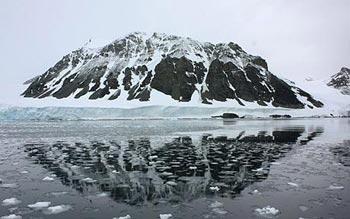Source: Xinhua
02-27-2009 10:27
Special Report: Tech MaxBEIJING, Feb. 26 (Xinhuanet) -- Antarctica glaciers are melting faster than before and across a much wider area, thereby threatening to raise sea levels worldwide and forcing migration of people to low-lying areas, according to scientists.
 |
| Glaciers melting so fast some could disappear by middle of the century(File photo) |
Earlier, scientists believed the melting was confined to the Antarctic Peninsula, a narrow tongue of land pointing toward South America. But satellite data and automated weather stations now indicate it is more widespread.
Scientists from British Antarctic Survey (BAS), Durham University and Germany's Alfred Wegener Institute for Polar and Marine Research (AWI) collected boulders deposited by three glaciers in the Amundsen Sea Embayment -- a region currently the focus of intense international scientific attention as it is changing faster than anywhere else on the West Antarctic Ice Sheet's (WAIS) and it has the potential to raise sea-level by around 1.5 meters.
Analysis of the boulders has enabled the scientists to start constructing a long-term picture of glacier behavior in the region. By the end of the century, the accelerated melting could cause sea levels to climb by 3 to 5 feet (about 0.91 to 1.52 meters)— levels substantially higher than predicted by a major scientific group two years ago.
Scientists also said the ice shelves that hold the glaciers back from the sea are also weakening.
In Washington, as part of an overall update on global warming, top researchers Wednesday sounded a similar warning to the U.S. Senate about rising temperatures in the Antarctic.
The head of the Intergovernmental Panel on Climate Change, a group set up by the United Nations, told lawmakers on the Environment and Public Works Committee that Earth has about six more years at current rates of carbon dioxide pollution before it is locked into a future of severe global warming.
-- Click for more news in Tech Max >>
